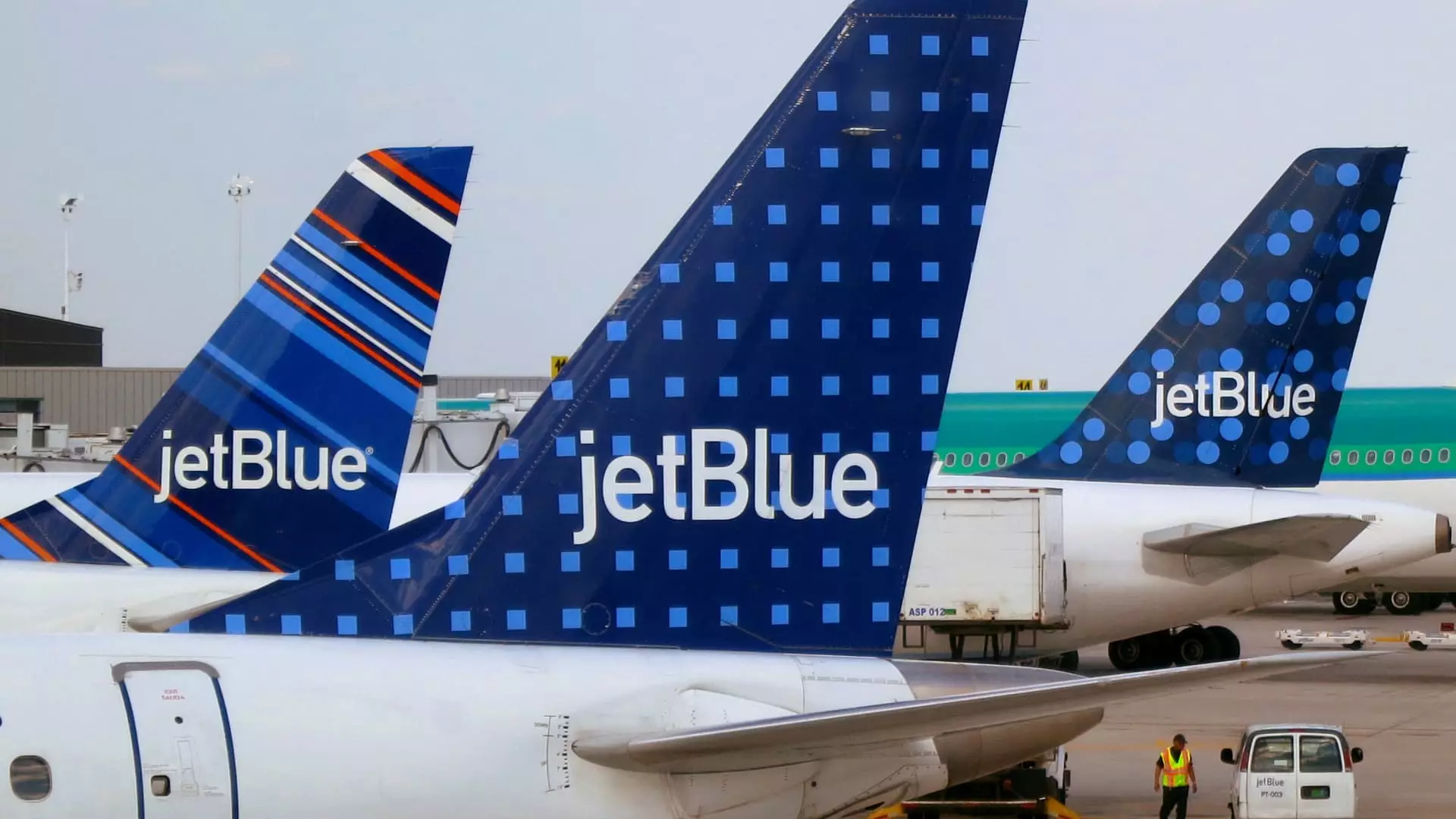In a landmark decision, the U.S. Department of Transportation (DOT) imposed a hefty $2 million fine on JetBlue Airways for a pattern of chronic flight delays, marking a significant shift in how flight irregularities are monitored and penalized in the airline industry. This unprecedented penalty was catalyzed by flights on four popular routes that experienced over 145 delays between June 2022 and November 2023. This incident not only sheds light on operational issues within the airline but also raises broader questions about accountability and safety standards across the aviation sector.
The affected routes primarily connected JetBlue’s home hub at John F. Kennedy International Airport with various destinations, including Raleigh-Durham International Airport and cities in Florida and Connecticut. Such a scale of delays fundamentally disrupts travel plans for countless passengers, compromising the reliability that travelers expect from air travel. The DOT characterized these delays as particularly troubling since JetBlue accounted for more than 70% of disruptions on those specified routes, suggesting a systemic issue that the airline had failed to address.
The DOT utilizes a clear criterion for identifying “chronically delayed” flights, which includes flights that are operated at least ten times per month but arrive more than 30 minutes late half the time. This regulatory approach aims to maintain pressure on airlines to adhere to realistic and achievable schedules, an aspect highlighted by Transportation Secretary Pete Buttigieg when he stated that the current action is intended to remind the airline industry of its responsibility to align flight schedules with operational realities.
Despite JetBlue still managing to fulfill a large number of flights, the persistent delays on specific routes warranted intervention from the government. This regulatory scrutiny signals a maturation of oversight in a sector historically plagued by consumer frustrations related to punctuality and service quality—not only for JetBlue but for the wider industry landscape. With ongoing investigations targeting other airlines suspected of similar scheduling practices, it is clear that the DOT is actively pursuing accountability.
In response to the fine, JetBlue acknowledged the challenges posed by operational constraints, particularly highlighting the urgent need for reform in the air traffic control (ATC) system. The airline argued that while it has settled this particular case, challenges such as outdated technology and chronic staffing shortages among air traffic controllers play a critical role in exacerbating delays.
JetBlue’s insistence on shared accountability reflects a broader sentiment among major carriers, including Delta and United Airlines, that the government must modernize ATC systems to improve efficiency and safety. It poses an interesting conundrum: how much of the responsibility lies with the airlines versus the systemic challenges present in air traffic management?
From January to September 2024, JetBlue’s performance metrics showed a marked improvement, with 71.3% of its flights arriving on time—a notable increase from 64.9% in the previous year. Though improvements are commendable, they also serve as a reminder that consistent performance remains vital. Regular disruptions can undermine customer trust, motivating passengers to seek alternatives. The fine may act as a catalyst for future operational reforms, benefiting not just JetBlue but the overall industry as airlines strive to enhance service reliability.
Furthermore, the DOT has agreed to credit JetBlue $1 million from the fine, acknowledging its goodwill efforts to compensate passengers affected during the investigation process. This thoughtful gesture highlights a significant trend toward placing customer welfare at the forefront in the airline industry.
The DOT’s decision to fine JetBlue signifies a pivotal moment in the aviation landscape, spotlighting the importance of accountability and realistic scheduling. As the industry grapples with technological inefficiencies and systemic reforms, this incident underscores the necessity for a concerted effort between airlines and the government to enhance the travel experience significantly.
Moving forward, the focus will lie not just in curbing delays but fostering an environment where air travel is reliable and passenger-centric. The JetBlue case will undoubtedly resonate throughout the industry, prompting both carriers and regulators to rethink their strategies and commitments to serving the flying public effectively.

